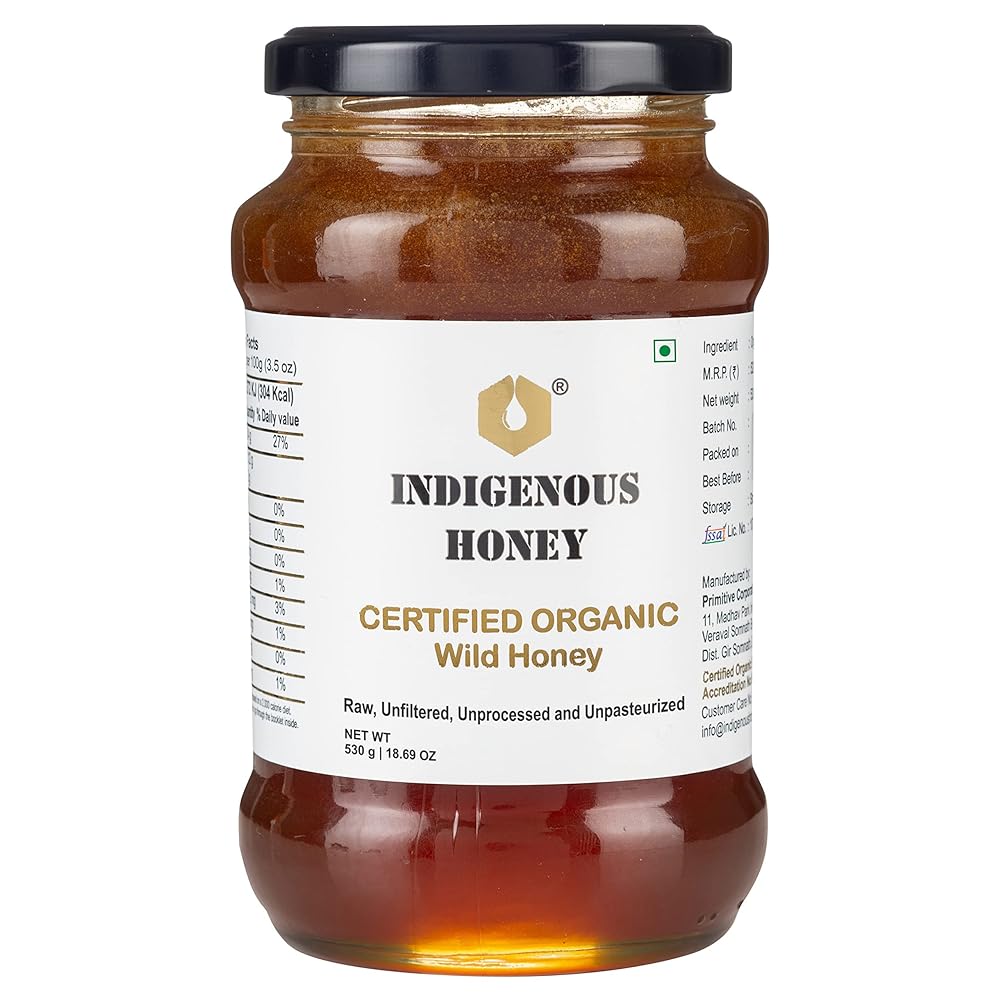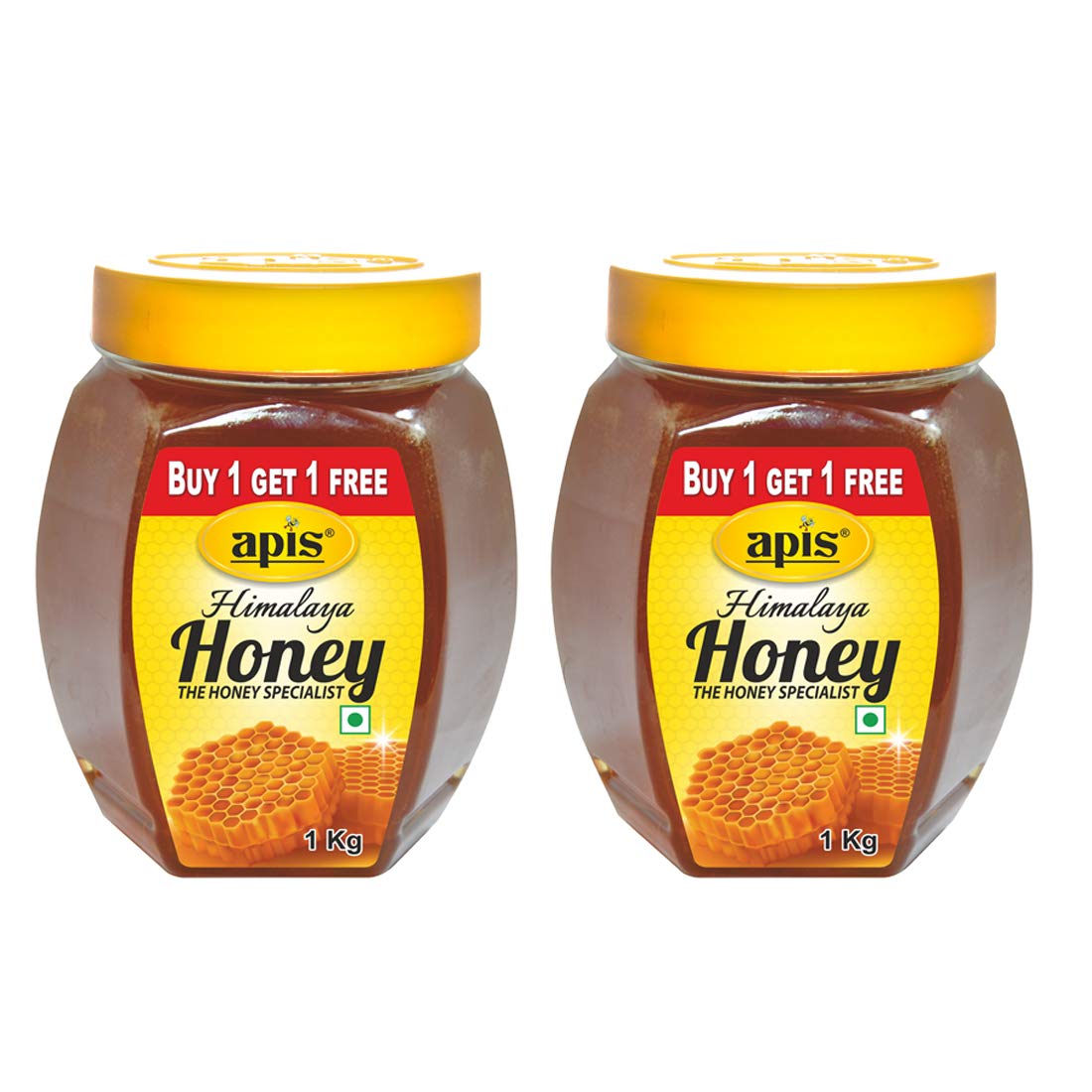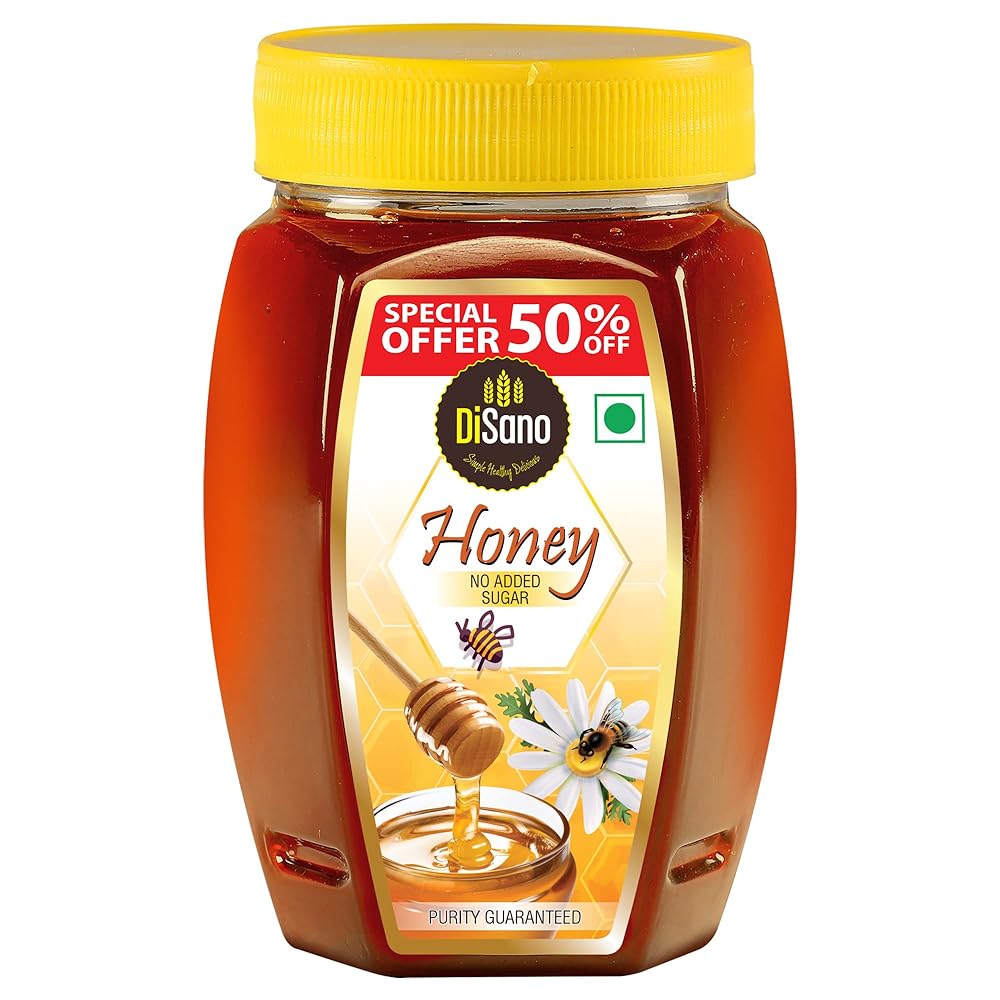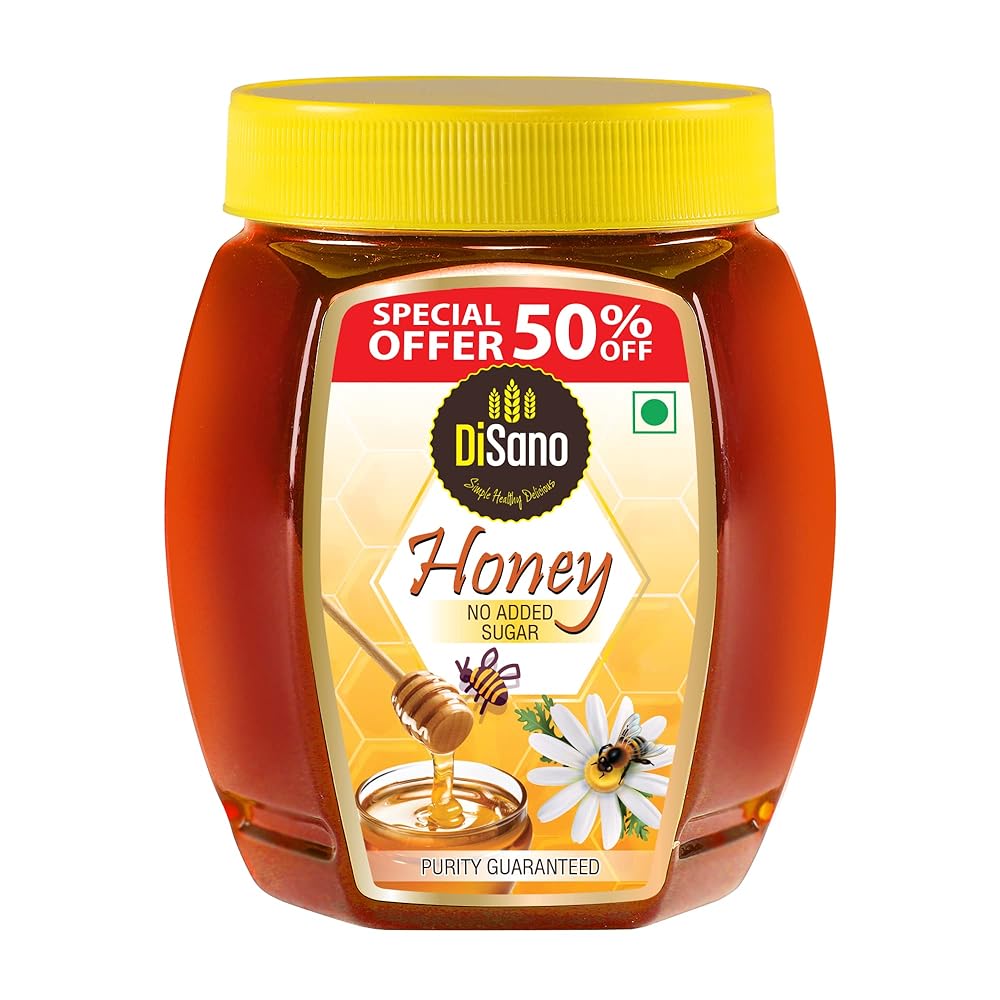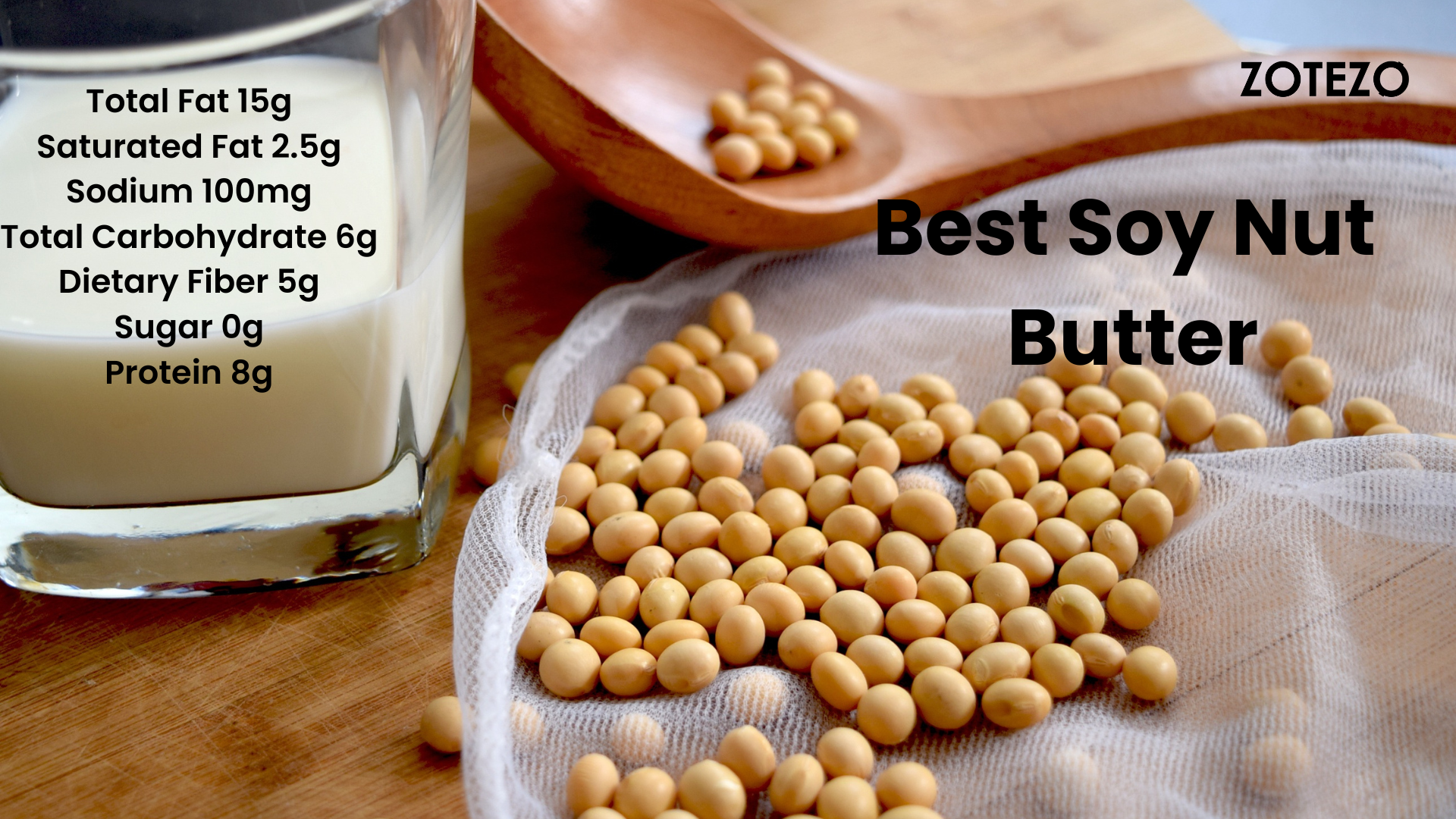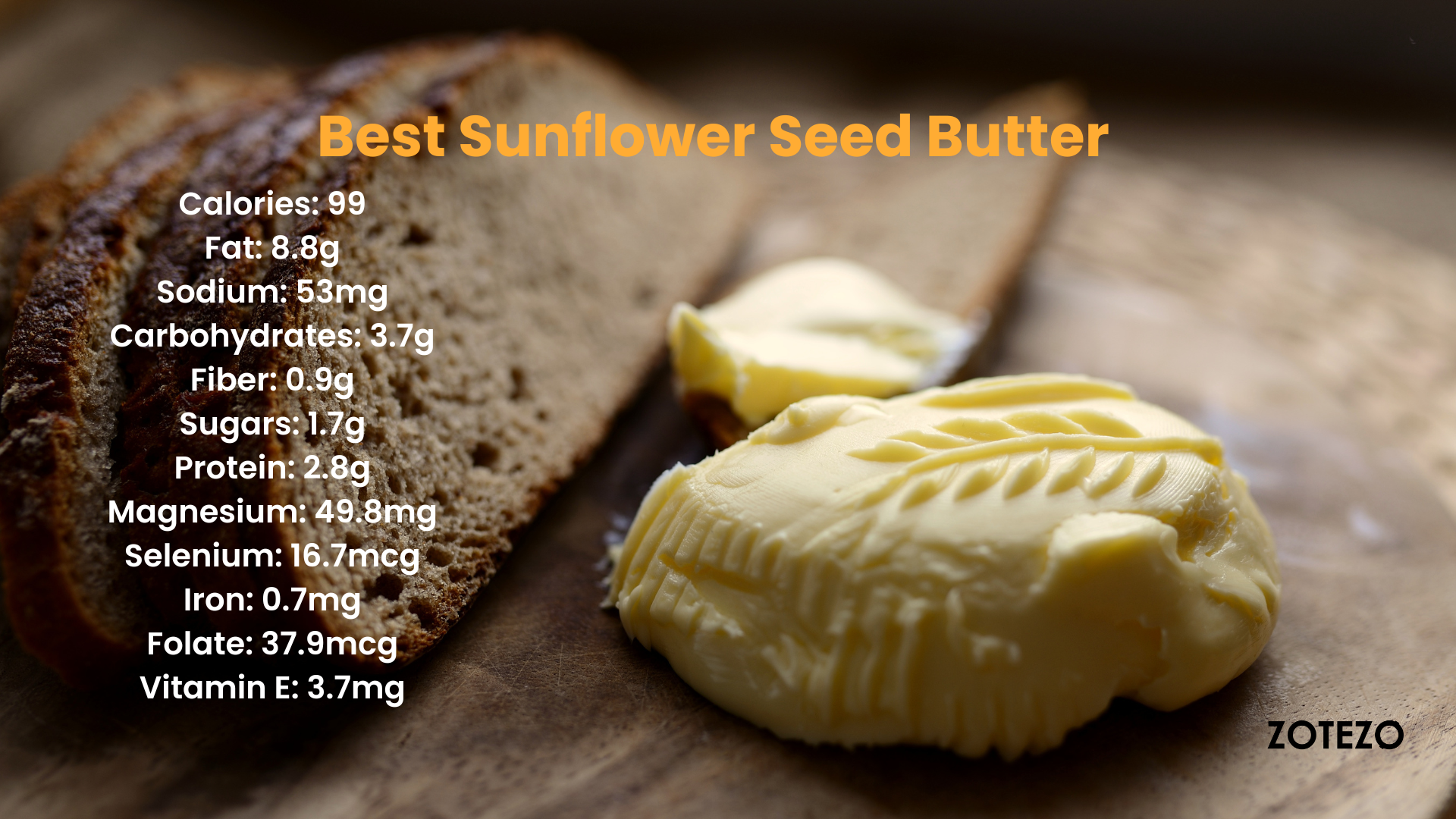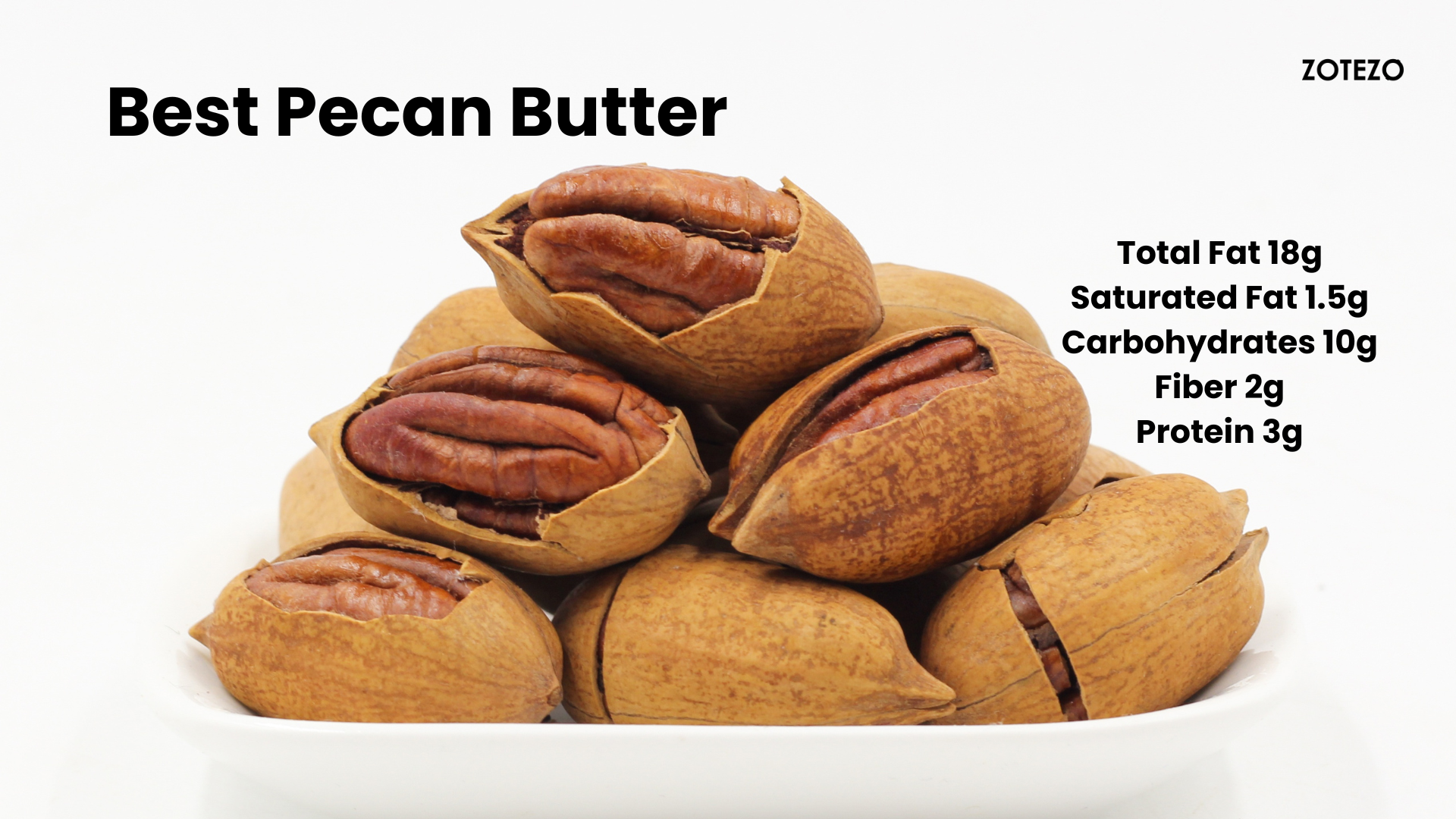Introduction
Organic honey, the golden nectar not only tantalizes your taste buds but also embraces a commitment to purity and environmental well-being. In this exploration of the “Best Organic Honey,” we embark on a journey through apiaries that prioritize sustainable practices, ensuring that every drop of honey is a harmonious blend of nature’s finest offerings. Organic honey isn’t just a buzzword; it’s a testament to the bees’ tireless work and the conscientious choices made by beekeepers dedicated to preserving the integrity of this liquid gold.
In this article, we’ll delve into the exquisite flavors and health benefits of organic honey, unearthing the distinctive qualities that set it apart from conventional varieties.
From the meticulous sourcing of blossoms in pesticide-free landscapes to the careful extraction and packaging processes, organic honey reflects a commitment to both consumer well-being and environmental stewardship.
Whether you’re a devoted honey enthusiast or someone eager to explore the nuances of this delectable elixir, join us on a delightful expedition to discover the best organic honey options available in Indian market that not only elevate your culinary experiences but also contribute to a sustainable, bee-friendly world. Get ready to savor the richness of nature’s sweetest gift!
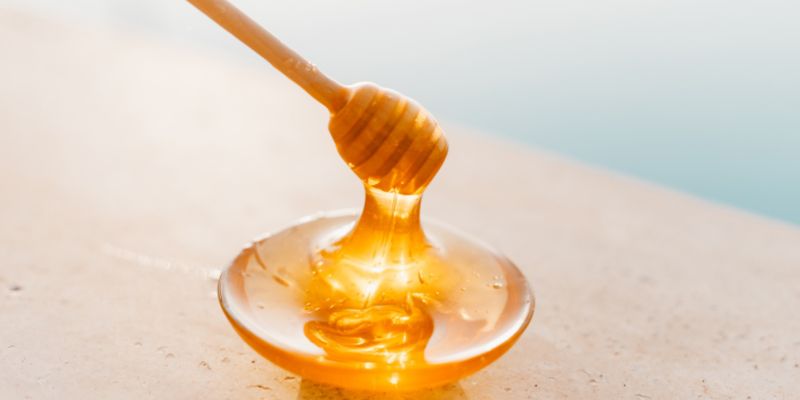
Our pick of the 5 best Organic Honey of 2024 in India
Zotezo Score | Best Honey | Lowest Price |
|---|---|---|
|
B+ |
||
|
B |
||
|
B |
||
|
C+ |
||
|
C+ |
Let's take a deep dive into these 5 best Honey in India
Best Overall Honey in India
Primitive Corporation
B+
Zotezo review
The INDIGENOUS HONEY Raw Organic Honey offers a natural, very pure, and high-quality honey that is NPOP Organic Certified. However, some customers may find the product’s high price point and limited size option in a 530g glass jar less appealing.
Product details
Benefits of Brand Indigenous Organic Honey &...
Drawbacks
Dabur india Ltd
B
Zotezo review
The Dabur Honey Squeezy Pack is a top choice for those seeking pure and natural honey with a rich flavor. Its FSSAI compliance, European sugar standards, and convenient packaging make it a reliable and flavorful option, despite some users finding the packaging bulky and the price slightly higher than other brands.
Product details
Benefits of Dabur Honey Squeezy Pack –...
Weaknesses
B
Zotezo review
The Apis Himalaya Honey, 1kg (Buy 1 Get 1 Free) offers excellent taste, smooth consistency, and comes at an affordable price. While the plastic jar packaging and great deal for 2kg of honey are highlights, some users may find the container cap fragile and face limited availability in local stores.
Product details
Benefits of Himalaya Honey, Apis, 1kg
Disadvantages
DISANO
C+
Zotezo review
DiSano Pure Honey 500g (pack of 1) is a high-quality product offering great taste and value for money. With its pure honey content and health benefits like weight management, it is a worthwhile purchase for those seeking a natural and delicious addition to their diet.
Product details
Benefits of DiSano Pure Honey 500g
Brij Honey Pvt. Ltd.
C+
Zotezo review
DiSano Pure Honey 1Kg offers good quality, reasonably priced honey with excellent taste and quality. While some users found the packaging inconvenient and mentioned consistency issues, the product’s pure nature and health benefits make it a worthwhile purchase for those seeking natural honey.
Product details
Benefits of DiSano Pure Honey 1Kg – Mo...
Cons
How We Tested: Navigating the Sweet Spectrum of Organic Honey
As discerning dietitians on a quest for the best organic honey, our journey involved a meticulous exploration of various factors to ensure that the golden elixir not only tantalizes the taste buds but also aligns with the highest standards of quality, purity, and sustainability. Our testing process was designed to unearth the nuances of different organic honey brands, from scrutinizing certifications and ingredients to evaluating flavor profiles and sustainability practices. Here’s an inside look into our comprehensive methodology:
1. Certification Check:
Rigorous Scrutiny: Our first step was to examine the certifications adorning each honey jar. We prioritized honeys with the USDA Organic seal, ensuring that they met stringent standards for organic production. Non-GMO Project Verified and Fair Trade Certified labels were also given due consideration, reflecting our commitment to health and ethical sourcing.
2. Ingredient Analysis:
The Pure and Unadulterated Standard: We delved into the ingredient lists with a keen eye, favoring honeys that boasted one ingredient – honey. Any additives, sweeteners, or artificial flavors were viewed with skepticism, as we sought the natural richness and complexity that characterize high-quality organic honey.
3. Sensory Evaluation:
Flavor Exploration: A crucial aspect of our testing involved a sensory journey through the diverse flavor profiles of organic honey. We sampled wildflower, clover, acacia, and varietal honeys, paying close attention to the nuances in taste, aroma, and texture. Our goal was to identify honeys that not only met organic standards but also delighted the palate with a harmonious symphony of flavors.
4. Origin and Transparency:
Tracing the Honey’s Roots: To ensure transparency, we investigated the origin of each honey. Brands that provided clear information about the source of their honey, including specific regions and beekeeping practices, received higher marks. Local and regional provenance was particularly celebrated, as it not only supports local beekeepers but also offers consumers a more direct connection to the honey’s journey from hive to jar.
5. Raw vs. Processed Honey:
Preserving the Goodness: Recognizing the debate surrounding raw versus processed honey, we sampled both varieties. Raw honey enthusiasts appreciate its unfiltered and unpasteurized nature, while others may favor the smoother texture achieved through processing. Our evaluation considered the nutritional benefits of raw honey, acknowledging that some processing methods may compromise these advantages.
6. Purity and Lack of Contaminants:
Pesticide-Free Priority: We investigated the pesticide and herbicide residues in each honey, leaning towards brands produced in regions with stringent organic farming practices. Brands that demonstrated a commitment to keeping their honey free from harmful contaminants received accolades for prioritizing consumer health.
7. Bee-Friendly Practices:
Sustainability Matters: The best organic honey goes beyond personal health to consider the health of the planet and its vital pollinators. We favored brands that embraced bee-friendly practices, avoiding overharvesting and implementing eco-friendly hive management techniques. Supporting sustainable beekeeping is not just a choice; it’s a responsibility.
8. Packaging and Environmental Impact:
Eco-Conscious Choices: The impact of packaging on the environment cannot be ignored. Brands using glass containers, which are less likely to leach harmful chemicals and are more easily recyclable, received positive evaluations. We recognized the efforts of brands striving to minimize their environmental footprint through thoughtful packaging choices.
9. Cost-Effectiveness:
Balancing Quality and Affordability: While recognizing that high-quality organic honey may come with a slightly higher price tag, we assessed the overall value each brand offered. Cost-effectiveness was considered in the context of the honey’s quality, certifications, and the brand’s commitment to sustainable and ethical practices.
10. Consumer Feedback:
Real-World Experiences: In addition to our own evaluations, we delved into consumer reviews to gain insights into real-world experiences. We considered feedback on flavor preferences, consistency, and overall satisfaction to supplement our own findings.
Our testing process was a journey through the intricate world of organic honey, guided by a commitment to empowering consumers with the knowledge to make informed choices. The result is a curated list of the best organic honeys that not only meet stringent organic standards but also excel in flavor, transparency, and sustainability. As you embark on your own exploration of these golden delights, may you savor not only the sweetness on your palate but also the assurance that each jar represents a conscientious choice for your well-being and the health of our planet.
Tips for choosing the right Organic Honey for you
As a dietitian passionate about wholesome choices, I’m thrilled to guide you through the nuances of this ambrosial world. From exploring different types of organic honey to deciphering certifications, understanding ingredients, and scrutinizing sources, we’ll cover every aspect to empower you to make informed decisions that align with your health and ethical values.
1. Types of Organic Honey:
Wildflower Honey: Harvested from the nectar of various flowers, wildflower honey boasts a robust flavor profile and may vary in color and taste depending on the region and blooming seasons.
Clover Honey: Known for its mild and sweet taste, clover honey is derived from the nectar of clover plants. It’s a popular choice for those seeking a versatile honey that complements various dishes.
Manuka Honey: Hailing from the nectar of the Manuka tree in New Zealand, this honey is celebrated for its unique antibacterial properties and distinct earthy taste.
Acacia Honey: Renowned for its light and mild flavor, acacia honey comes from the nectar of acacia flowers. It’s an excellent option for those who prefer a delicate sweetness.
2. Certifications Matter:
USDA Organic: Look for honey labeled with the USDA Organic seal, indicating that it meets the strict standards set by the United States Department of Agriculture for organic products. This ensures the honey is free from synthetic pesticides, herbicides, and genetically modified organisms (GMOs).
Non-GMO Project Verified: If you’re particularly concerned about the presence of genetically modified ingredients, opt for honey with the Non-GMO Project Verified seal, signifying that it has undergone rigorous testing for GMOs.
Fair Trade Certified: Choosing honey with the Fair Trade Certified label supports ethical labor practices and fair wages for beekeepers, ensuring that your sweet indulgence contributes to a socially responsible industry.
3. Ingredients:
Pure and Simple: The best organic honey should have one ingredient – honey. Avoid products with added sugars, sweeteners, or artificial flavors. The natural richness and complexity of honey flavors are best experienced in their unadulterated form.
4. Harmful Ingredients to Avoid:
Pesticides and Herbicides: Opt for honey produced in regions with stringent organic farming practices to minimize the risk of pesticide and herbicide residues in the final product. Certifications such as USDA Organic provide assurance in this regard.
Additives: Steer clear of honey that contains unnecessary additives or preservatives. High-quality organic honey doesn’t need additional enhancements to deliver its authentic taste and health benefits.
5. Sources and Transparency:
Local and Regional Provenance: Whenever possible, consider honey sourced locally or regionally. This not only supports local beekeepers but also provides a more transparent supply chain, allowing you to trace the honey back to its origins.
Transparent Labeling: Choose brands that prioritize transparency in labeling. Clear and informative labels should detail the honey’s origin, certifications, and any additional information about the beekeeping practices.
6. Raw vs. Processed Honey:
Raw Honey: Unfiltered and unpasteurized, raw honey retains more of its natural enzymes, antioxidants, and beneficial compounds. While it may crystallize over time, this is a natural process and doesn’t diminish the honey’s quality.
Processed Honey: Some commercial honey undergoes heating and filtration processes to delay crystallization and achieve a smoother texture. However, these processes may compromise the honey’s nutritional value. Choose raw honey for a more wholesome option.
7. Flavor Profiles and Pairing:
Explore Varietal Honeys: Different floral sources impart distinct flavors to honey. Explore varietal honeys like orange blossom, lavender, or eucalyptus to experience a spectrum of taste profiles. Experiment with pairing honey with cheeses, fruits, or in cooking to elevate your culinary creations.
8. Sustainability Practices:
Bee-Friendly Brands: Support brands and beekeepers committed to sustainable and bee-friendly practices. This includes avoiding overharvesting, providing adequate forage for bees, and implementing eco-friendly hive management techniques.
9. Packaging Considerations:
Glass vs. Plastic: Opt for honey packaged in glass containers, as they are less likely to leach harmful chemicals into the honey. Glass is also more environmentally friendly and preserves the honey’s quality.
10. Price vs. Quality:
Invest in Quality: While budget considerations are valid, prioritize the quality of the honey. High-quality organic honey may come with a slightly higher price tag, but the benefits to your health and the environment are well worth the investment.
Products listed here are carefully reviewed and tested by our expert authors and reviewers. If you buy through links on this page, we may earn a small commission. Here’s our editorial process.
How we reviewed these products
Benefits of using Organic Honey
Beyond its delectable taste and golden allure, honey stands as a potent elixir with a rich history of medicinal use. As a dietitian dedicated to promoting health through informed choices, let’s delve into the myriad health benefits that the best honey can offer. From its antioxidant properties to wound healing prowess, honey emerges not only as a delightful addition to your pantry but also as a versatile ally in promoting overall well-being.
1. Antioxidant Powerhouse:
Flavonoids and Polyphenols: The best honey varieties are replete with flavonoids and polyphenols, powerful antioxidants known for their ability to combat oxidative stress. These compounds play a crucial role in neutralizing free radicals in the body, helping to protect cells from damage and reduce inflammation.
2. Immune System Support:
Antibacterial Properties: Honey has been cherished for its natural antibacterial properties, attributed to substances like hydrogen peroxide and bee-derived peptides. These properties make honey a formidable defender against bacteria, potentially supporting the immune system in its quest to ward off infections.
3. Soothing Sore Throats:
Natural Cough Suppressant: The thick, syrupy consistency of honey provides a soothing coating for the throat, offering relief from coughs and irritation. A teaspoon of honey, especially when combined with warm water or herbal tea, can be a comforting remedy for a scratchy throat.
4. Wound Healing and Skin Benefits:
Topical Application: Honey’s natural antibacterial properties extend to its external application. When applied topically, honey can aid in wound healing, reduce inflammation, and promote tissue regeneration. Manuka honey, in particular, has gained recognition for its exceptional wound-healing properties.
5. Gut Health Support:
Prebiotic Potential: Honey serves as a prebiotic, promoting the growth and activity of beneficial gut bacteria. This can contribute to a healthy gut microbiome, which plays a crucial role in digestion, nutrient absorption, and overall digestive well-being.
6. Energy Boost without the Crash:
Natural Sweetener: As a natural source of carbohydrates, honey provides a quick and sustainable energy boost. Unlike refined sugars, honey’s combination of glucose and fructose releases energy gradually, preventing the sudden spikes and crashes associated with processed sugars.
7. Rich in Nutrients:
Vitamins and Minerals: While not a significant source of vitamins and minerals, honey contains trace amounts of nutrients such as B vitamins, potassium, and iron. Including honey in your diet can contribute a modest but valuable array of micronutrients.
8. Allergy Alleviation:
Local Honey and Pollen Exposure: Consuming local honey may have potential benefits for individuals dealing with seasonal allergies. The theory is that exposure to small amounts of local pollen in honey may help the immune system adapt and reduce allergy symptoms. However, more research is needed to establish this link definitively.
9. Heart Health Support:
Cholesterol Regulation: Some studies suggest that honey may have a positive impact on cholesterol levels. Regular consumption of honey has been associated with a decrease in LDL (“bad”) cholesterol and an increase in HDL (“good”) cholesterol.
10. Anti-Inflammatory Effects:
Reducing Inflammation: Honey’s anti-inflammatory properties extend beyond antioxidants, potentially aiding in the reduction of chronic inflammation. Chronic inflammation is linked to various health conditions, including heart disease, diabetes, and autoimmune disorders.
11. Weight Management:
Satiety and Craving Reduction: The natural sweetness of honey can satisfy sweet cravings, potentially helping individuals manage their overall calorie intake. Additionally, honey’s composition of glucose and fructose may influence hormones that regulate hunger and satiety.
12. Cognitive Health:
Antioxidant Impact on Brain Function: The antioxidant content of honey may have positive implications for cognitive health. Antioxidants help protect the brain from oxidative stress, which is associated with cognitive decline and neurodegenerative diseases.
13. Regulating Blood Sugar Levels:
Moderate Impact on Glycemic Response: While honey does raise blood sugar levels, it generally has a milder impact compared to refined sugars. The combination of fructose and glucose, along with honey’s lower glycemic index, contributes to a more gradual increase in blood sugar.
14. Adaptogenic Potential:
Stress Response: Some varieties of honey, particularly adaptogenic honey like Manuka, may have stress-relieving properties. These honeys contain compounds that can help the body adapt to stressors and maintain a balanced physiological state.
Understand the who, what & why behind your favourite products
Brand Values | Product Philosophy | Product USPs
Read brand stories, their raison-d'etre, and understand what drives them to caringly create the highest quality products for your well-being.
Brand stories
Frequently asked questions on Organic Honey
1. Does honey expire?
2. Should honey be refrigerated?
3. What happens if you eat honey every day?
Expert reviews you can rely upon
Expert Insights | Product Reviews | Connect with Experts
Gain valuable insights and read unbiased product reviews by subject matter Experts on Zotezo, the ultimate trust commerce platform, that empowers millions globally to make informed decisions for their wellbeing.
Expert Advisory
Conclusion
**Conclusion: A Sweet Symphony of Health and Sustainability**
Our journey has been more than a quest for sweetness; it has been a pursuit of purity, flavor, and conscious choices. Through a rigorous testing process, we uncovered the golden gems that stand out not just for their delicious taste but for their adherence to stringent organic standards, transparent sourcing, and sustainable beekeeping practices.
The best organic honey isn’t merely a condiment; it’s a reflection of a commitment to health and the environment. From the floral notes of wildflower honey to the delicate sweetness of acacia, each jar tells a story of bees buzzing amidst untouched blossoms, creating a symphony of flavors that resonate with nature’s essence.
As you embark on your journey to explore these organic honey delights, consider not only the delectable taste on your palate but also the holistic impact of your choice. Support beekeepers who prioritize the well-being of their buzzing collaborators, choose honeys that embrace sustainable practices, and revel in the knowledge that every spoonful contributes to a healthier you and a healthier planet.
We invite you to share your experiences with these organic honeys. Your feedback is invaluable in our ongoing quest to uncover and celebrate the best choices for health-conscious consumers. Have you discovered a hidden gem not mentioned here, or do you have insights to share about your favorite honey variety? Let us know – after all, the sweetest discoveries are often made together. Happy honey tasting!

